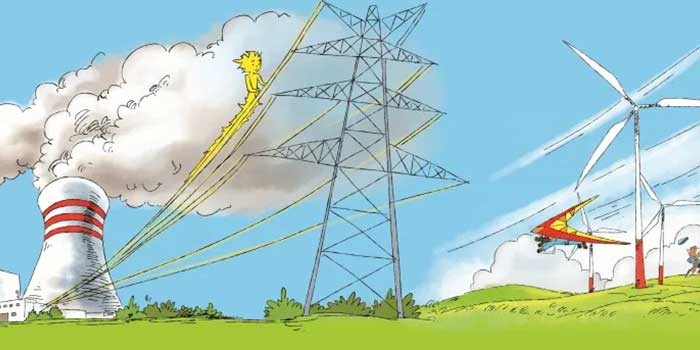What Is The Source Of Electricity?


For contemporary people in most parts of the world, electricity is a necessity. It is an essential commodity that contributes to our comfort. Our jobs, gadgets, and most daily activities are directly dependent on our ability to access electricity.


But where does electricity come from?
Surprisingly, many of us feel overwhelmed when faced with this question. We’ve gotten so used to the comfort of electricity that we stop caring about where it comes from and see it as an abstract concept. In the simplest terms, what generates electricity are electrodes that move in a conductor. Electricity travels in short-range circuits, which we activate by flipping a switch. It reaches end-users via power lines.
In a power line network, electricity is transmitted at extremely high voltages, which helps minimize power losses. At about 14,000 volts, it started running on poles located in our community. It was converted in a local transformer to a safe range of 100 to 250 volts before reaching our house.
Common sources of electrical energy
The sources of electricity vary widely. Coal and other fossil fuels are the world’s main sources of electricity. Other sources include nuclear, biomass, and renewable energy sources such as solar, hydro, wind, and hydrothermal.
Depending on the source of electricity, different production techniques are used. Most of the world’s electricity is generated with the help of steam turbines. This device converts high-pressure steam from a boiler into energy by rotating blades and turning on a generator.
Other commonly used renewable energy technologies include solar panels, wind, gas, and hydro turbines. Each source of electricity has a unique set of advantages and disadvantages.
Want to learn more about sources of electricity? Let’s take a deeper look
fossil fuel
As of 2020, approximately 63% of the world’s electricity comes from fossil fuels, including coal, natural gas, and other sources such as oil. Despite its huge ecological impact, fossil fuels remain a core source of electricity because of the well-developed infrastructure for their production and relatively low prices. Fossil fuel plants are more reliable than other power generation technologies and can serve society for a long time.
However, demand for fossil fuels as a source of electricity has been steadily declining due to the advent of new energy sources and concerns about climate change and air pollution. The key disadvantage of fossil fuels is that they produce more carbon dioxide than alternative energy sources.
Of all fossil fuels, natural gas is the most common source of electricity (40%), followed by coal (23%). Both gas and coal are burned in the boiler as a fine powder, activating the turbines.
nuclear energy
Nuclear energy helps produce about 15 percent of electricity globally, but it is slightly more common in the United States, at 20 percent. Like fossil fuel plants, nuclear power plants are very reliable and long-term in service. Any accident involving nuclear energy is sporadic, and with proper management, the chance of it happening is reduced to zero.
As a bonus, atomic energy is eco-friendly because no greenhouse gases are emitted when producing electricity, and only a small amount of waste is generated in the process.
The energy of a nuclear power plant is produced through nuclear fission, which is the process of splitting atoms. Neutrons collide with uranium atoms to generate heat, which is then combined with water in a typical steam turbine.
Recent Posts
How to quickly understand what three-phase cable is? Favorite here!
In the world of industrial and commercial power distribution, three-phase cables play a critical role…
Rivo-doza sy tondra-drano! Ny fomba hiarovan'ny tariby rano amin'ny herinaratra?
Introduction In recent years, heavy rainfall and flooding have become increasingly frequent worldwide, causing severe…
Ny anjara asan'ny indostrian'ny tariby sy ny fanamby amin'ny toe-karena boribory
Introduction As sustainability becomes a global priority, industries across the spectrum are reevaluating their operations…
Ahoana no ahafahan'ny indostrian'ny tariby miatrika fanamby amin'ny famatsiana manerantany?
The global supply chain is an intricate and essential network that connects manufacturers, distributors, retailers,…
Ny fiantraikan'ny angovo azo havaozina amin'ny fitakiana tariby
Introduction The global shift toward renewable energy has become a cornerstone of efforts to combat…
Global Cable Market Trend Forecast 2025
The global cable market is integral to a wide array of industries, including energy, telecommunications,…


